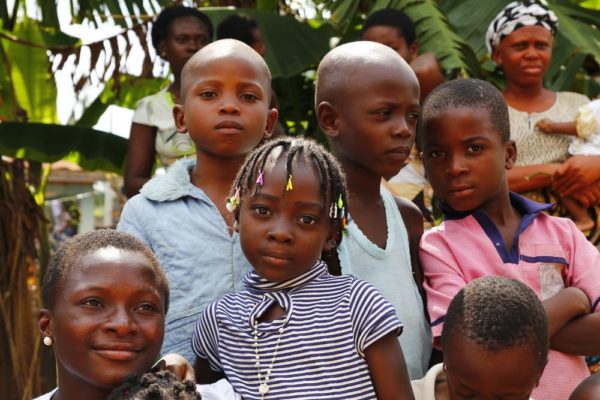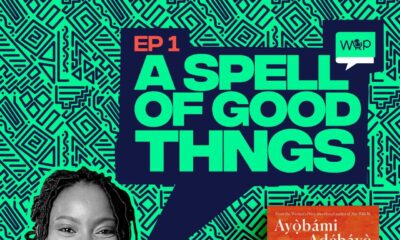Features
Oluseyi Adebiyi: The Value of One Nigerian Life
 The year 2015 is undoubtedly a decisive year for Nigeria, as the nation gradually approaches election D-day. Day in day out, news stands are filled with dailies with various headlines that are more or less fired salvos from one political camp to the other. Only recently the President was in Lagos to flag-off his campaign, making statements that triggered reactions from the opposing camp and so the back and forth went.
The year 2015 is undoubtedly a decisive year for Nigeria, as the nation gradually approaches election D-day. Day in day out, news stands are filled with dailies with various headlines that are more or less fired salvos from one political camp to the other. Only recently the President was in Lagos to flag-off his campaign, making statements that triggered reactions from the opposing camp and so the back and forth went.
In the midst of this tussle, one question I’ve asked myself is whether this quest for power was indeed for the Nigerian populace, or just for personal selfish ambitions. Every day the news is awash with one incident or the other, resulting in deprivation for some and in many cases, the loss of lives for others and I only just wonder out aloud “of what worth is a Nigerian life?”
In April 2014, the Federal Government embarked on the rebasing of the economy, changing the base year that served as reference, for GDP calculations. With this, the country became the largest economy in Africa (with a GDP of $510b in 2013), while South Africa came a distant second.
This, more than ever before, gave the ruling government more bragging right – informing all who cared to listen that Nigeria had taken its rightful place as the Giant of Africa. However, in the midst of this rebasing farce was the continual onslaught and carnage that remained unabated in the Northern part of the country, alongside a host of other social malaise that a vast majority of the population had to contend with. So, while Nigeria had become the economic giant of Africa, it had perhaps also become the social midget of Africa.
A close look at many global socio-economic indices states a clearer picture;
• Infant mortality rate: 74.36 deaths per 1,000 live births (ranking only higher than Chad, Central African Republic, Guinea Bissau, Sierra Leone and Somalia)
• Death rate: 13 persons/1000 people (ranking only higher than Angola – 14, Botswana – 17, Central African Republic – 15, Chad – 15, Equatorial Guinea – 14, Lesotho – 15, Sierra Leone – 17 and Swaziland – 14)
• Global Poverty Index: Ranked 3rd Position, where 7% of the world’s poor live in.
Although there are a thousand and one indices to compare, the above stated indeed gives a picture of the grim realities that a vast majority of the Nigerian population are confronted with.
The Nigeria of today seems to have become one in which there is no regard for human life. This disregard for human life is indicated not just in the huge body counts that are reported from the killings and maiming of Boko-Haram and other vices, but rather it is indicated in the level of disaffection and culpability that many of us have become guilty of. While it is easy to point accusing fingers at the political class, who always choose to turn every of such carnage to politics, the truth remains that each and every one of us has become a culprit in this matter. Across the various states in the country, we are daily confronted with many issues which were created not just by the ruling government, but also by the people.
Think of:
• The various vehicles that are used as mass transit vehicles within and around many states. In Lagos for instance, majority of the danfo buses in use are no better than metal containers with tires. In many instances, the drivers of these buses are aware of the poor state of the bus (and even without emergency kits, or exits) but still go ahead to load passengers in it – in most cases overload.
• The many drainages and waterways which have become clogged with refuse and all manner of wastes. Despite repeated cases of flooding in many parts of the state and the concerted efforts of the government to provide a more co-ordinated waste management system, many citizens would rather litter the environment with their waste than properly dispose of it. That Gala wrapper or La-Casera bottle you throw out of the window may perhaps be the cause of the next flooding, or just perhaps a summersaulting vehicle.
• The many regulators who choose to look the other way, in the face of wrong-doing, all for the sake of the possible benefits they may derive from the guilty party. Every policeman, LASTMA, VIO and FRSC official are people like us, living among us and whom we many times fail to caution of their excesses/negligence, especially in times when we stand to benefit from it.
• The top military officials who would rather have a good share of the defence budget than properly equip the soldiers for the war against terrorism. Yet they would not bat an eyelid while sentencing them to death, allegedly for mutiny.
• The ministry official who chose to take a bribe rather than ensure that the quality of road, healthcare, education, or other infrastructure that his contractors deliver on are in line with global standards, or even locally stipulated requirements. They are our uncles, aunts, relatives, etc.
• The many times when we’ve chosen to drink before driving, make phone calls while driving, or in some cases, drive above recommended speed limits.
I could go on and on with different scenarios that will only keep stating the obvious. Everyday we wake up, one question we should ask ourselves, is how much we value the life of our next door neighbour. I’m forever in love with the American creed that states that “we hold these truths to be self-evident that all men are created equal and endowed by the creator with certain inalienable rights unto life, liberty and the pursuit of happiness.”
If I may ask, what is the Nigerian creed? Recent terrorist incidents in Boston, Australia and France have claimed not more than 50 citizens in total, yet the entire nations stood still to hunt down and bring the culprits to book. In Nigeria however, in year 2015 alone, over 1000 people were killed in Baga, yet we go about our daily lives, as though nothing ever happened. This is also inclusive of the many incidents of 2014; Immigration Saga, FGC Bakin-Ladi murders, Chibok girls abduction, among others.
Hmmm… Yes we rant, we tweet and rally, but in the course of time, we revert to fate. Really I must ask, what is the worth of a Nigerian life?
Photo Credit: Dreamstime | Jordi Clave Garsot





















